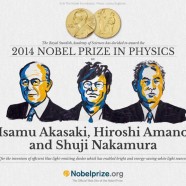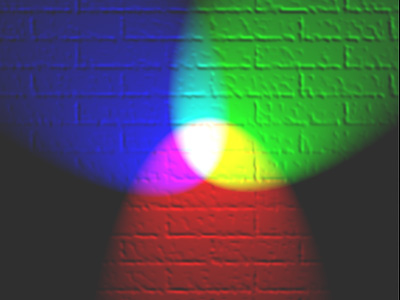Invention of Blue LED Wins Nobel Prize
The Nobel Prize rewards an invention “of greatest benefit to mankind“, and this year, that distinction recognized LED lighting as an energy-efficient technology that will fundamentally change the way we see our planet. The Royal Swedish Academy of Sciences announced that three scientists were awarded the 2014 Nobel Prize in Physics for inventing the blue LED.
Isamu Akasaki, Hiroshi Amano, and Shuji Nakamura were the first to generate blue LED light, a feat that had eluded scientists for decades. Green and red LED lights had long since already existed, but blue light was necessary to combine with green and red to generate white light, as seen below.
Once blue LEDs were created, it allowed the commercial development of white LED lamps, which are now revolutionizing the lighting and energy sectors worldwide. It’s why we’re currently seeing a rapid transition to LEDs in everything from home and hotel illumination to massive infrastructural city lighting in places like London, Tokyo and New York. Interestingly, blue LEDs are also showing promise in the treatment of Alzheimer’s disease, and were even used to reverse paralysis in laboratory mice.
Among many other benefits, LED lamps are often recognized as being extremely energy-efficient. This is mainly reflected in a lamp’s “lumens per watt” data, which indicates the amount of light generated (“lumens”) per watt of energy used. High quality LEDs are capable of generating upwards of 300 lumens per watt, vastly outperforming incandescent and fluorescent lighting sources (16 lumens/watt and 70 lumens/watt, respectively). Further, LEDs last 10 to 100 times longer than competing technologies, which allows for a dramatic reduction in waste and material consumption.
LED light is seen as a bright beacon for those in the developing world, where access to electricity often comes at a premium. “The LED lamp holds great promise for increasing the quality of life for over 1.5 billion people around the world who lack access to electricity grids,” the Academy noted in their press release. “Incandescent light bulbs lit the 20th century; the 21st century will be lit by LED lamps.”












